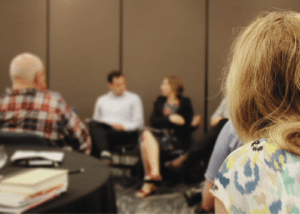Operational Learning: What it is (and what it isn’t)
Published by HOPLAB by Southpac International

In today’s world of work, managers are often asked to oversee processes and systems that many have had little personal exposure to. Managers and HSE leaders are usually in the position of writing or reviewing procedures or rules for work that they don’t perform. Although this approach has become commonplace, it doesn’t change the fact that we cannot successfully manage what we don’t fully understand. We need good, relevant and accurate information to make good choices and decisions.
Frontline workers have a wealth of knowledge about what it takes to get the work done. We call this operational intelligence.
Operational learning is as it sounds – learning from our operations by tapping into this operational intelligence. Operational learning allows leaders to become learners of our frontline workers, who are empowered to share what it takes to get the work done. This allows us to draw together the gap between the operation and management.
How do we ‘do’ operational learning?
A great thing about operational learning is that we can start it immediately and weave it into everything we do.
- One method is starting to take a HOP lens to work, applying the 5 HOP principles to work.
- Leaders can start by showing a genuine interest in wanting to learn from our workers, empowering our frontline staff by seeing them (and treating them) as a valuable source of operational intelligence.
- We can start to build relationships with our frontline staff, staying curious, and humble, by genuinely wanting to understand and learn about their work.
Operational learning allows an experienced senior leader to go on site and ask “what does it really take to get the job done” or “I used to do this job, but I don’t anymore. Tell me what it’s like to do this work today.” These are just some of the approaches we can take on a day-to-day basis.
There are also some more formal operational learning tools we can look to implement. One you may have heard of is learning teams. Learning teams are a tool whereby leaders learn from our frontline workers, through a more structured, facilitated conversation, to discover what normal work really looks like. In addition, frontline workers participating in the learning team then work together to identify some of their own recommendations or solutions, to make things better. Learning teams are a powerful way to showcase the worker as the problem solver.
What operational learning isn’t
We now know more about what operational learning is. So what isn’t operational learning?
- It is not about blaming, finger pointing or finding fault
- It has nothing to do with measuring compliance
- It is not about getting witness statements or getting one ‘true story’
- It is not a traditional investigation
- It is not about finding a ‘root cause’
Operational learning is as it sounds – learning more about our operation, and how it runs. This includes learning about some of the messiness of our operation, from those closest to it.
A final thought
Finally, To be successful and effective in operational learning, we must ensure we have the right environment and culture. This will enable operational learning to thrive. Without this in place, we will likely do more harm than good. That is to say, if workers feel questioned and uncomfortable defences will increase. As a result, the gap between workers and management will widen.
Therefore, first and foremost, we must ensure that HOP principles are embedded within our organisation before attempting operational learning.

Subscribe to the HOP|LAB® Newsletter
Get the latest information and insights on Human and Organisational Performance delivered to your inbox.





